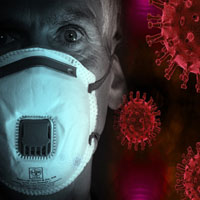Exploring the impacts of COVID-19 related social distancing on loneliness, psychological needs and symptomatology

Submitted: September 4, 2020
Accepted: November 29, 2020
Published: January 14, 2021
Accepted: November 29, 2020
Abstract Views: 3109
PDF: 701
HTML: 10
HTML: 10
Publisher's note
All claims expressed in this article are solely those of the authors and do not necessarily represent those of their affiliated organizations, or those of the publisher, the editors and the reviewers. Any product that may be evaluated in this article or claim that may be made by its manufacturer is not guaranteed or endorsed by the publisher.
All claims expressed in this article are solely those of the authors and do not necessarily represent those of their affiliated organizations, or those of the publisher, the editors and the reviewers. Any product that may be evaluated in this article or claim that may be made by its manufacturer is not guaranteed or endorsed by the publisher.
Similar Articles
- Olga MarÃa Fernandez, Mariane Krause, Janet Carola Pérez, Therapeutic alliance in the initial phase of psychotherapy with adolescents: different perspectives and their association with therapeutic outcomes , Research in Psychotherapy: Psychopathology, Process and Outcome: Vol. 19 No. 1 (2016): Special issue on Qualitative and Quantitative Research in Child and Adolescent Psychotherapy: part 2
- Tomáš Řiháček, Jan Roubal, Katarína Motalová, Facets of the psychotherapy relationship: a metaphorical approach , Research in Psychotherapy: Psychopathology, Process and Outcome: Vol. 23 No. 3 (2020)
- Michael B. Buchholz, Horst Kächele, From turn-by-turn to larger chunks of talk: An exploratory study in psychotherapeutic micro-processes using conversation analysis , Research in Psychotherapy: Psychopathology, Process and Outcome: Vol. 20 No. 3 (2017)
- Nina Jakhelln Laugen, Torun Grøtte, Truls Ryum, Patrick A. Vogel, Heidi Brattland, Katrine Høyer Holgersen, Something has sort of opened up for me: psychology students’ reflections after participating in an apprenticeship training model , Research in Psychotherapy: Psychopathology, Process and Outcome: Vol. 27 No. 2 (2024)
- Bruno Faustino, António Branco Vasco, Ana Nunes Silva, Telma Marques, Relationships between emotional schemas, mindfulness, self-compassion and unconditional self-acceptance on the regulation of psychological needs , Research in Psychotherapy: Psychopathology, Process and Outcome: Vol. 23 No. 2 (2020)
- Elliot Jurist, David Greenberg, Marissa Pizziferro, Rozita Alaluf, Michael Perez Sosa, Virtue, well-being, and mentalized affectivity , Research in Psychotherapy: Psychopathology, Process and Outcome: Vol. 26 No. 3 (2023)
- Giovanna Esposito, Anna Sara Cutolo, Raffaella Passeggia, Silvia Formentin, Miguel Mario Gonçalves, Tracking change in group interventions: a further adaptation of the innovative moments coding system for groups , Research in Psychotherapy: Psychopathology, Process and Outcome: Vol. 25 No. 3 (2022): SPECIAL ISSUE: "Group psychotherapy: between settled benchmarks and new horizons"
- Lidia Borghi, Claudio Cassardo, Elisa Mingarelli, Elena Vegni, The relevance of social dreaming for action research: exploring jail workers’ unconscious thinking of the changes in the prison organization , Research in Psychotherapy: Psychopathology, Process and Outcome: Vol. 24 No. 2 (2021): SPECIAL ISSUE "Working on dreams, from psychotherapy to neuroscience"
- Raquel Pereira, António Pazo Pires, David Neto, Therapist self-awareness and perception of actual performance: the effects of listening to one recorded session , Research in Psychotherapy: Psychopathology, Process and Outcome: Vol. 27 No. 1 (2024)
- Christin Janine Grevenhaus, Christoph Flückiger, Lea Theimer, Cord Benecke, Does technique matter? A multilevel meta-analysis on the association between psychotherapeutic techniques and outcome , Research in Psychotherapy: Psychopathology, Process and Outcome: Vol. 27 No. 2 (2024)
<< < 10 11 12 13 14 15 16 17 18 19 > >>
You may also start an advanced similarity search for this article.

 https://doi.org/10.4081/ripppo.2020.492
https://doi.org/10.4081/ripppo.2020.492





